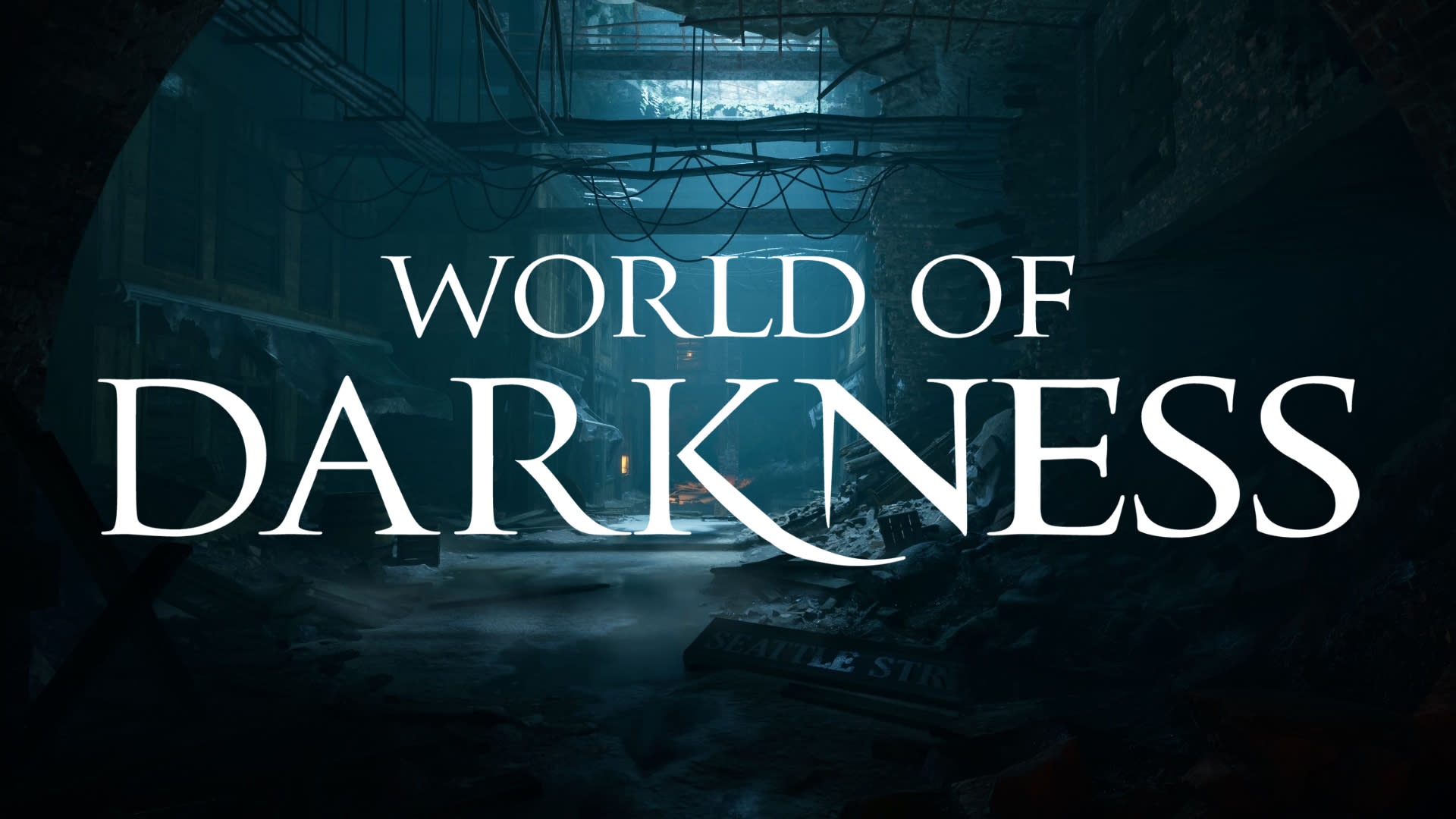

Latest News
Latest News
Dev Diary #15 – Dialogue Choice Systems
The summer break is over, and we’re back with a juicy Dev Diary for you. Today, Sarah Longthorne, TCR's Senior Narrative Designer and Writer, will delve into the intricacies of our dialogue systems and the thought processes behind their design for Bloodlines 2. Just a small warning: This journal delves into the inner workings of the branching dialogue code, which potentially contains minor spoilers.
“The presentation of dialogue options is different in Bloodlines 2 – a lot of it stems from TCR’s legacy of celebrating fully-realised characterisation and empowering voice actors to do more heavy lifting and explore more nuance.
To give an example, when selecting a dialogue option, players should know exactly what they’re opting into (we’ve all known the frustration of ‘But that’s not what I thought that meant!’), but the kind of spelling-out this requires precludes the ability to lean into the strengths of actors. This would also have caused problems for UI, since Phyre often has more to say that can be reasonably presented on screen—especially when we’re also catering to console. Ultimately, the needs of the player were integral: players should have all the information they need about their selected option and should feel confident in their choice, while the actor is allowed more playfulness in following that directive.
Now, seeing as you’re reading a Dev Diary, I assume that means you’ve seen some game materials that we have already shared, which means you’ll have noticed an early result of the above dilemma: we initially toyed with representing our dialogue choices in summary, to make the intention of the branch abundantly clear and lean harder into our ‘strategic’ approach to roleplay (more on that shortly).
However, this quickly revealed itself as the wrong direction—and not just because you guys (rightly) said so. Getting into the weeds of our conversations, I found that the choices on offer felt samey when viewed from above, even when the content was entirely different—zoom too far out and you lose fine detail, which is where your flavour lives.
So we settled on a compromise, the tried-and-true next best thing: (carefully) paraphrased speech.
But what about the content of these choices?
Remember what I said about strategies? The best way to approach choice design is to look at your theme. In Bloodlines 1, your options are a mixture of strategy and humanity (with other options thrown in to honour, for example, your clan). The same is true in other titles: in Baldur’s Gate 3, choice options are themed roughly around a simplified version of the morality alignment seen in D&D; in Telltale’s The Walking Dead, they are themed around the central question of ‘Do you have to be cruel to survive?’.
VtM’s World of Darkness is so named for its cynical perspective—its blood-tinted glasses, if you will. Kindred are a natural extension, a metaphor of that worldview. The recurring motif is typically ‘How can I get what I want?’, with little being left off the table, though with room enough for those fading echoes of humanity to cling on—or at least, appear to do so. In this way, Bloodlines 1’s approach of marrying strategy with morality is the ideal direction, and it’s the one we’ve chosen.
But what does that mean for division of choice in more concrete terms? In other words, what courses of action might an Elder vampire such as Phyre consider?
The first, and most obvious, is to lean into their status, age, potency and power to intimidate those around them. In other contexts, this can manifest as being willing to voice the unpopular opinion, and being direct about it—‘not beating around the bush’, so to speak. After all, nobody fucks with an elder, right? Right?
But what if they do? What if, after a century in torpor, your age is all that’s going for you?
Age counts for a lot, true, but being Kindred is about more than what’s supernaturally afforded to you, and a clever vampire will have more up their sleeve than what their abilities allow—other ways of exerting control. After all, Bloodlines without some political scheming and intrigue just wouldn’t be Bloodlines. And that doesn’t even account for Phyre’s unique and, well, unfortunate circumstances. (Picture, if you will, the eyes-looking-to-the-side emoji.)
Throwing your weight around isn’t always the best option, especially in a world overrun with big egos and at least thirteen different species of narcissists. Sometimes, the best way to deal with someone is to let them take the W… for now. Stroke their pride, affirm their delusions, whisper honeyed lies and fall under the radar of capability. Become the listening ear, the comforting shoulder, the trusted disciple. Such a strategy can take you far… assuming your victim buys it.
Two ways to play the game—two extremes. So what occupies the middle ground?
A shrewd Kindred may know better than to bet it all on a big play. Knowledge is power, both others’ knowledge of you and your knowledge of them. Better, sometimes, to remain a mystery, to let others show their hand. Perhaps you achieve this straightforwardly, by responding to questions with more questions, or indirectly by choosing words that might provoke a reply, a telling outburst. By scooting back from the table, flipping the board and laying the game bare. If social navigation among Kindred is a careful masquerade, what happens when you rip off another’s mask and expose the subtext—say, with perceptive observations?
Of course, your options are not always strictly limited to these three approaches (we haven’t forgotten about Clan-specific options, for instance), and how each approach manifests will not always be uniform. You may also be sitting here wondering where humanity factors in.
The beauty of this system lies in subjective interpretation, both by you and others. Unless clearly indicated, we will never assume the intent for your choice on your behalf. Perhaps you were buttering up Lou Graham so your treachery would go unnoticed, but perhaps you genuinely admire her? Perhaps you wanted to make sure the young Prince understood the hierarchy so they wouldn’t mess with your plans, or perhaps they were simply getting on your nerves? Strategy or sincerity—that much is up to you.
But of course, that won’t stop other characters from having their own interpretation.
Conversations are not an exception to gameplay, but an expression of it, and if gameplay is a test of skill, conversations are a test of emotional intelligence. To that end, each of our characters in Bloodlines 2 has their own preferences and biases rooted firmly in who they are and what drives them, which – combined with your choices – determines and flavours their opinion of you. This is a little more in-depth than like or dislike; to give a few simplistic and unrepresentative examples (no spoilers!): perhaps the compliment that so pleased the Primogen came across as sarcasm to the thin-blood? Perhaps to the Brujah your bullying was a blush of life? So you see, reactions to your choices are not uniform, but unique to the NPC and their unique disposition, and you’ll have to put some work into figuring out what makes them tick.

Above is a screenshot from our Inky editor showing how player choice influences perception and relationship in aggregate.
In the top choice, Phyre protests Lou’s intrusion on a private meeting, and if Lou is not used to this behaviour from Phyre, she will be slightly taken aback, responding with “Someone’s touchy tonight” before rejoining the branch that everyone else who took this option will see: “My childe and I have no secrets, do we, darling?”
Regardless, choosing this option will adversely affect Lou’s opinion of Phyre – indicated by ~Lou_DislikedThat – which over time can layer with her perception that Phyre is a bully, an empath or a sage. (RF_Unimpressed) represents the nature of her displeasure, which feeds the UI players will see.
In the second, softer choice option – “Welcome” – Lou’s interpretation of Phyre's response is again distorted by her existing perception of who Phyre is, which in turn affects whether her opinion of Phyre goes up or down.
If she’s used to you being aggressive, but here you choose the softer route, she’ll assume you’re being sarcastic and become annoyed, lowering her opinion – after all, Lou is fluent in sarcasm, so it’s no stretch that she would project this into others.
However, if you’re not usually aggressive then she’ll take you at your word and respond favourably, with her opinion rising in tandem. In this branch, there is no merge: players either see “Well there’s no need for sarcasm” or “And it’s in part thanks to you”.


Two variations of Lou reacting to the above scene, depending on if you irritate or please her.
But this is also accumulative. If you have always come across as weak, for better or worse, sudden strength could have its own, unique response. The same goes if you have a reputation for directness, or for keeping your cards close to your chest. Things like your Clan and the details of your legend colour how others see you, as well as the colour of the lens through which they filter their reality, but so do your actions over time. And let’s not forget context and situational factors—what worked once won’t necessarily work every time. We don’t want you getting complacent, picking options transactionally to fill up some bar or progress some metric; we want you thinking, and engaging from moment to moment.
As a Kindred would.”
- The Chinese Room’s Senior Narrative Designer and Writer Sarah Longthorne

Vampire: The Masquerade - Bloodlines 2
Fight your way through a modern-day Seattle on the brink of an open war as an elder Vampire. Meet the power-players, ally yourself and decide who will rule and what the city will become.


